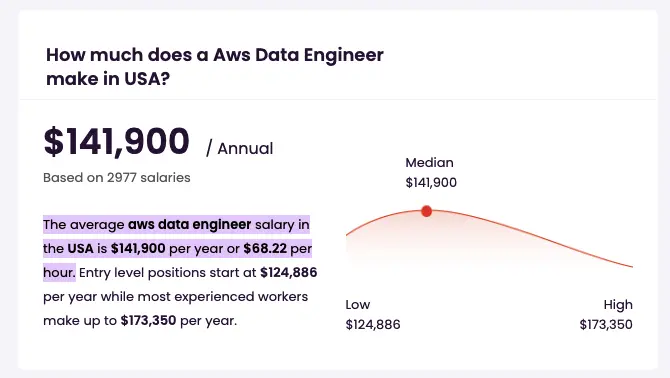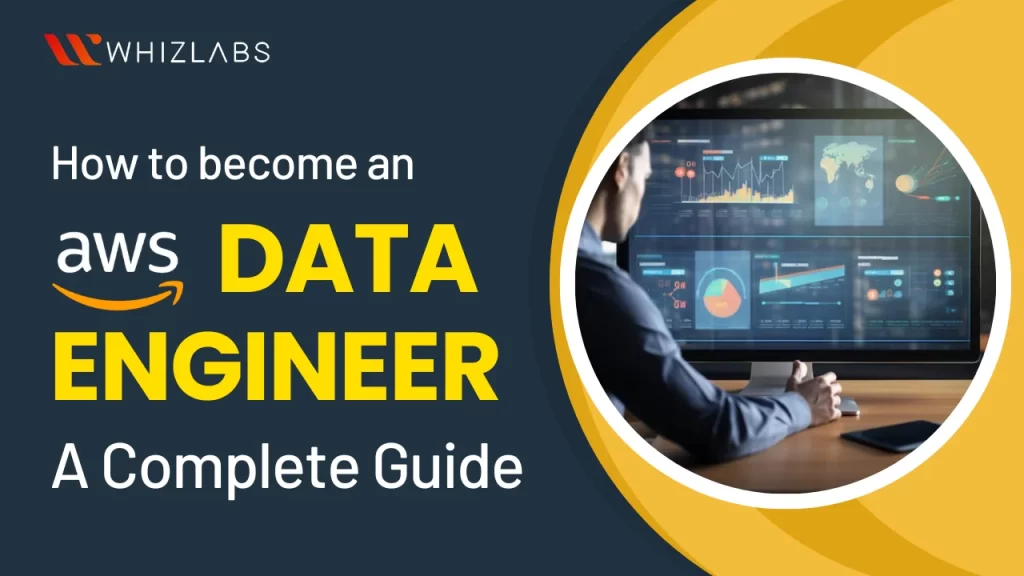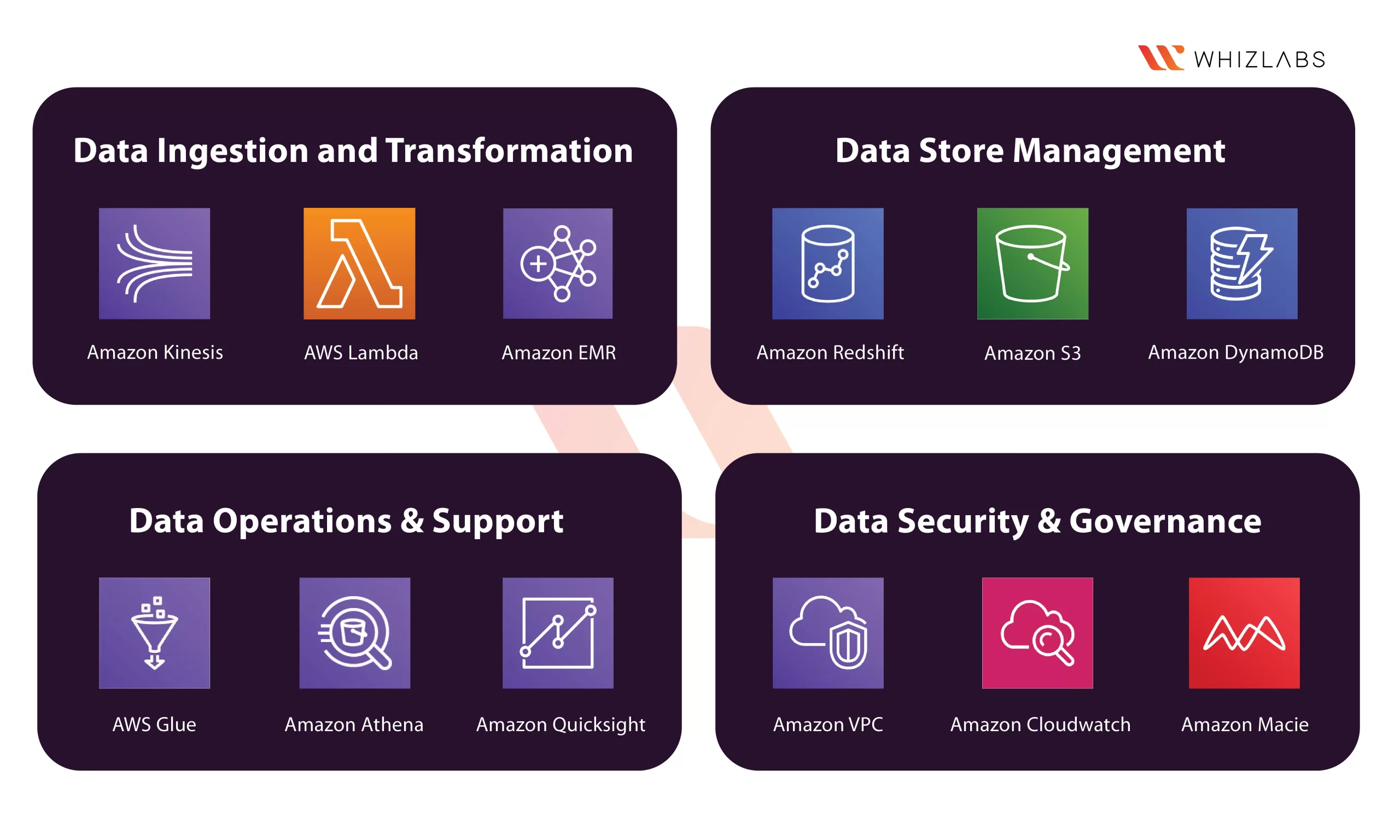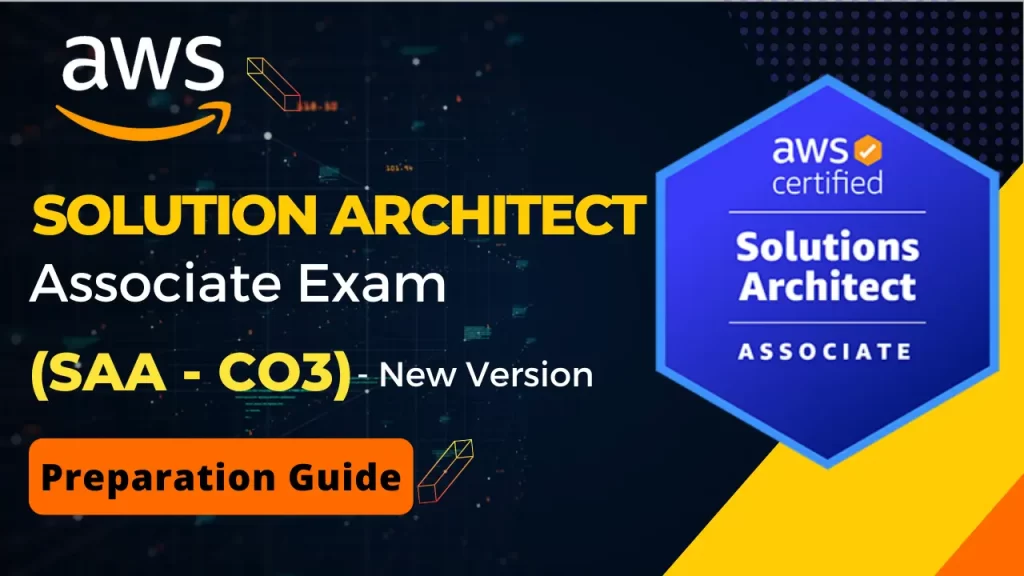AWS has recently launched the AWS Certified Data Engineer – Associate certification. Taking this certification helps to validate your expertise in fundamental AWS data-related services. It also assesses your capacity to set up data pipelines, effectively handle monitoring and troubleshooting, and optimize performance while adhering to industry best practices.
If you’re keen on utilizing AWS technology to harness data for analysis and actionable insights, this AWS Data Engineer Associate Certification beta exam provides you with the chance to become one of the initial recipients.
Let’s dig in!
AWS Recent Update: AWS Certified Data Engineer Associate(DEA-C01) Certification Coming Soon!
Amazon Web Services (AWS) has just unveiled a fantastic opportunity for those aspiring to venture into the field of Data Engineering with the brand new “AWS Data Engineer Associate Certification”.
If you are a newbie in the Data Engineering field, then taking the AWS Data Engineer Certification Beta course will be an ideal choice. AWS Certified Data Engineer Associate Certification (DEA-C01) will become the fourth Associate-level certification offered by AWS, joining the ranks of Solutions Architect, Developer, and SysOps Administrator Associate exams.
Data engineers mainly engaged in activities such as creating, maintaining, and upgrading the AWS cloud infrastructure to smoothly run applications. The tasks related to Data Engineering significantly increased the sought-after demand for AWS Data Engineers.
To know the latest information about this exam, you can visit the Coming Soon to AWS Certification page. From there, you can access the exam guide for the newly introduced DEA-C01 exam.
AWS Data Engineer Associate (DEA-C01) Certification: Best AWS certification for Data Engineers
Aws Certified Data Engineer exam confirms your expertise in essential AWS data services. It showcases your capability to create data pipelines, effectively handle monitoring and troubleshooting, and optimize both cost and performance, all while adhering to industry best practices.
If you are interested in harnessing AWS technology to transform data into valuable insights for analysis, this beta exam presents a unique chance to be among the pioneers in achieving this newly introduced certification.
Target Audience for AWS Data Engineer Associate(DEA-C01) Certification
According to the DEA-C01 exam guide released by AWS, the AWS Certified Data Engineer – Associate (DEA-C01) exam is tailored for individuals who have 2-3 years of experience in AWS data engineering and at least 1-2 years of hands-on skills with AWS services.
AWS also stated that candidates must have expertise in handling the impacts of data volume, diversity, and speed on tasks including data ingestion, transformation, modeling, security, governance, privacy, schema design, and the design of optimal data storage solutions.
AWS Data Engineer Associate DEA-C01 Exam Launch Details:

The AWS Certified Data Engineer 2023 Exam date has been announced and it seems to be taken from November 27, 2023, and January 12, 2024.
The AWS Certified Data Engineer – Associate (DEA-C01) exam is now in beta state and you can register for the beta version of this exam, which starts on October 31, 2023.
After the termination of the beta version, you can start registering for the standard version of the exam in March 2024. For additional information, you can check out the AWS DEA-C01 exam guide.
Exam Format of AWS Certified Data Engineer – Associate Certification
| Aspect | Details |
| Exam Type | Multiple-choice and multiple-response questions |
| Hands-on Labs | None |
| Beta Version Questions | 85 questions |
| Final Version Questions | 65 questions (50 scored, 15 unscored) |
| Scoring | Scale of 100-1,000 |
| Passing Score | A minimum score of 720 required to pass |
| Guessing Penalty | No penalty for guessing, so it’s recommended to answer every question |
AWS Data Engineer Certification DEA-C01 Exam Domains
AWS Data Engineer Associate Certification Exam domains break down into four categories:
| Domains | Weightage |
| Data Ingestion and Transformation | 34% |
| Data Store Management | 26% |
| Data Operations and Support | 22% |
| Data Security and Governance | 18% |
Let’s delve a bit deeper into each of the four domains covered in the DEA-C01 exam:
Domain 1: Data Ingestion and Transformation (34%)
This domain constitutes more than one-third of the total exam content. It emphasizes the processes of ingesting, transforming, and managing data, as well as orchestrating ETL (Extract, Transform, Load) pipelines for data handling. You can become familiar with AWS services like Kinesis, Redshift, and DynamoDB streams, followed by transforming them based on specific requirements using tools such as Lambda, EventBridge, and AWS Glue workflows.
Moreover, a grasp of fundamental programming concepts such as infrastructure as code, SQL query optimization, and CI/CD (Continuous Integration and Continuous Delivery) for pipeline testing and deployment is essential.
Domain 2: Data Store Management (26%)
This domain revolves around effectively storing and cataloging data. It encompasses various tasks, including data modeling and defining schemas for diverse data types, including structured, unstructured, or semi-structured data.
Candidates should have a comprehensive knowledge of AWS storage solutions and the ability to select the most suitable data store based on factors like availability and throughput requirements. Additionally, managing data lifecycle in a cost-efficient, secure, and fault-tolerant manner is crucial.
Domain 3: Data Operations and Support (22%) In this domain, candidates are evaluated on their proficiency in utilizing AWS services for data analysis and maintaining data quality through automated data processing. This involves configuring monitoring and logging for data pipelines and utilizing services such as CloudTrail and CloudWatch to aid in troubleshooting any operational issues.
Familiarity with AWS Glue DataBrew is also essential, as it plays a pivotal role in data preparation, transformation, defining data quality rules, and data verification and cleaning.
Domain 4: Data Security and Governance (18%)
The final domain places a strong emphasis on data security, authorization, and compliance. Candidates are required to comprehend the significance of security within an AWS architecture and the implementation of robust security measures both within the VPC network infrastructure and for user access control through AWS Identity and Access Management (IAM).
This includes understanding the principle of least privilege and applying role-based, attribute-based, and policy-based security measures when applicable. Proficiency in encryption and the utilization of AWS Key Management Service (KMS) for data encryption and decryption is also essential.
These domains provide a comprehensive framework for evaluating a candidate’s knowledge and skills in data engineering within the AWS environment, covering essential concepts and practices in data management, transformation, analysis, security, and governance.
Also Read : 8 AWS Data Engineer Associate Exam Tips
Whether to take the DEA-C01 exam beta version or wait for the standard version?
Consider taking the beta exam:
If you want to earn the certification prior, then consider taking beta version. As the beta version of the exam is available at a discounted rate, you can save money compared to fees for the standard exam. It is important to note that the beta exam will be somehow difficult and you have to tackle the challenging question.
If you successfully pass the beta exam and become one of the first to earn the AWS Certified Data Engineer – Associate certification, you’ll not only gain the distinction of being an early achiever but also significantly enhance your professional profile.
Similar to other AWS certifications, this credential will remain valid for three years, just as if you had passed the standard post-beta version of the exam. This achievement not only gives you a reason to be proud but also provides a substantial boost to your career.
Consider Waiting for the DEA-CO1 Standard Version if:
- If you prefer to study with well-established, widely recognized exam preparation materials and resources. Standard exams typically have more resources available.
- You are risk-averse and want to avoid potential uncertainties or variations in the beta exam content and scoring.
- If you have more time to prepare and can wait for the standard version, which may provide a longer preparation window.
Top 10 AWS Data Engineer Tools
The process of AWS data engineering involves multiple stages that utilize various tools developed by AWS to meet specific requirements. AWS offers many tools but in this section we learn about top 10 AWS data engineering tools . These tools are popular with data engineers across the big data industry.
Amazon S3:
Amazon s3 is also called Amazon simple storage service. This service is offered by AWS that provides Object storage service for storing and retrieving data. Amazon S3 provides secure and flexible storage solutions for businesses of all sizes, enabling them to easily manage and access their data at scale.
AWS Glue:
AWS Glue is a fully managed service for extract, transform, and load (ETL) operations, streamlining the preparation and loading of data for analytics purposes.It automatically discovers and catalogs datasets from various sources, allowing users to easily transform and clean data using built-in or custom scripts written in Python or Scala.
With serverless architecture, Glue scales elastically to handle data processing tasks of any size, reducing operational overhead. Additionally, it integrates seamlessly with other AWS services like S3, Redshift, and Athena, enabling organizations to build efficient and cost-effective data pipelines for analytics, machine learning, and other data-driven applications.
Amazon Redshift:
Amazon Redshift is a fully managed data warehousing service that enables organizations to analyze large datasets with high performance and scalability. It utilizes columnar storage and massively parallel processing (MPP) architecture to deliver fast query performance on petabyte-scale data.
Redshift integrates seamlessly with popular BI tools and data visualization platforms, making it easy to derive insights from data. With features like automatic backups, encryption, and on-demand scaling, Redshift offers a cost-effective solution for data warehousing needs. Organizations can efficiently store and analyze vast amounts of data, empowering data-driven decision-making and driving business growth.
AWS Lambda:
AWS Lambda is a serverless compute service that enables developers to run code without provisioning or managing servers. It automatically scales based on the incoming traffic and charges only for the compute time consumed.
Lambda facilitates the use of various programming languages and seamlessly integrates with other AWS services, enabling developers to effortlessly create event-driven applications and microservices.
In addition Lambda, developers can focus on writing code and delivering value without worrying about infrastructure management. It’s ideal for executing backend tasks, processing data, and building scalable APIs, enabling agile development and reducing time to market for applications.
Amazon EMR:
Amazon EMR is also called Elastic MapReduce and it is a managed big data platform on AWS that simplifies the processing of large datasets using open-source frameworks like Apache Hadoop, Spark, and Presto. It automated provisioning, scaling, and monitoring of clusters, allowing users to focus on analyzing data rather than managing infrastructure.
EMR supports various analytics workloads, including batch processing, real-time processing, and machine learning. With flexible pricing options and seamless integration with other AWS services, EMR provides a cost-effective solution for big data processing.
Amazon Kinesis:
Amazon Kinesis is a fully managed streaming data platform on AWS, enabling real-time processing of large volumes of data from diverse sources such as clickstreams, logs, and IoT devices.
It offers three services:
Kinesis Data Streams for real-time data ingestion.
Kinesis Data Firehose for loading data into data lakes or analytics services.
Kinesis Data Analytics for real-time analytics on streaming data.
Amazon RDS:
Amazon RDS (Relational Database Service) is an AWS-managed database service that streamlines the configuration, management, and scalability of relational databases. It supports popular database engines like MySQL, PostgreSQL, Oracle, and SQL Server, automating routine administrative tasks such as hardware provisioning, backups, and software patching.
With features like high availability, automatic failover, and scalable storage, RDS enables users to focus on building applications rather than managing databases, while ensuring reliability, performance, and security.
Amazon Athena:
Amazon Athena is an interactive query service on AWS that allows users to analyse data stored in Amazon S3 using standard SQL queries. There’s no need for complex ETL processes or data movement, as Athena directly queries data in S3, making it simple and cost-effective to analyse vast amounts of data with minimal setup and maintenance.
Amazon QuickSight:
Amazon QuickSight is a fully managed business intelligence service on AWS that enables organizations to easily create and visualize insights from their data. With QuickSight, users can effortlessly build interactive dashboards and reports using a wide range of data sources, including AWS services, databases, and third-party applications.
Its pay-per-session pricing model ensures cost-effectiveness, while features like machine learning-powered insights and integration with other AWS services make it a powerful tool for data-driven decision-making.
AWS Data Pipeline:
AWS Data Pipeline is a web service on AWS that helps users reliably process and move data between different AWS services and on-premises data sources. It allows users to define data-driven workflows using a visual interface, scheduling and orchestrating activities such as data transformation, copying, and analysis.
With features like fault tolerance, monitoring, and automatic scaling, Data Pipeline simplifies data management tasks, enabling users to focus on extracting value from their data with ease.
AWS Data Engineer Certification Cost
For those seasoned AWS Data Engineers planning to take the new AWS Certified Data Engineer – Associate (DEA-C01) exam between November and January, there’s a fantastic opportunity to be among the early achievers of this certification and enjoy a significant cost-saving advantage.
During this period, the beta version of the exam will be available at a 50% discounted rate, priced at $75 USD instead of the standard $150 USD. This not only allows you to be at the forefront of certification but also helps you keep some extra money in your pocket.
AWS Data Engineer Associate Certification Path
AWS Certified Data Engineer – Associate (DEA-C01) Exam serves as a starting point for individuals who may not have a background in data but want to explore advanced Specialty topics. On the flip side, for those already working in data-related roles, this certification offers an excellent chance to expand their AWS knowledge using specialized services they are probably already familiar with.
Even though acquiring these skills was always possible without formal certification, the introduction of a structured certification pathway provides an incentive for learners to pursue certification. It also encourages training providers to address the skill gap by offering targeted training and resources.
You can also access the AWS Certification path to get familiar with the AWS certification and its services.
AWS Certified Data Engineer Salary

According to talent.com, the average AWS data engineer salary in the USA is around $141,900 per annum or $68.22 per hour. The salary may deviate according to the skills, experience, and location.
FAQs
Does the AWS data engineer require coding?
Yes. coding is necessary for those who want to pursue a career in the AWS Data Engineer roles.
What does an AWS data engineer do?
AWS data engineers perform the data engineering tasks in the Amazon Web Services cloud platform. AWS engineer’s main job is to create, maintain, and upgrade AWS cloud infrastructure to run applications.
Is AWS an ideal choice for Data Engineers?
AWS is an excellent choice for data engineers. Data engineers have diverse requirements when constructing data pipelines, and AWS offers a comprehensive suite of data engineering tools that streamline the process. These AWS data engineering tools simplify the creation of data pipelines on AWS, facilitate data transfer management, and ensure effective data storage solutions.
What skills are required for an AWS data engineer?
To become an AWS Data Engineer, you must have the following skills to perform the Data Engineering tasks successfully:
- SQL Skills
- Data Modelling
- Hadoop for big data
- Python
- AWS Cloud services
What is AWS Data Engineering?
AWS Data Engineering involves collecting data from diverse sources for storage, processing, analysis, visualisation, and pipeline creation on the AWS platform.
What are the key responsibilities of a data engineer within AWS?
A data engineer within AWS is responsible for collecting data from diverse sources, designing storage solutions, building processing pipelines, analysing data, creating visualizations, managing pipelines, optimising performance, ensuring security and compliance, collaborating with teams, and documenting processes.
Conclusion
We hope this blog post covers the essentials of AWS Data Engineer Associate Certification in a detailed manner.
If you possess coding skills and aspire to pursue a career as an AWS data engineer, you’ve likely discovered a promising path. This role opens up opportunities to tackle some of the most complex and pioneering challenges in the field of data engineering today. Get familiarised with Aws Certified Data Engineer exam labs provided by Whizlabs.
If you want to take any other AWS Certification, start enrolling today. Best of luck with your exam preparation!
- Study Guide DP-600 : Implementing Analytics Solutions Using Microsoft Fabric Certification Exam - June 14, 2024
- Top 15 Azure Data Factory Interview Questions & Answers - June 5, 2024
- Top Data Science Interview Questions and Answers (2024) - May 30, 2024
- What is a Kubernetes Cluster? - May 22, 2024
- Skyrocket Your IT Career with These Top Cloud Certifications - March 29, 2024
- What are the Roles and Responsibilities of an AWS Sysops Administrator? - March 28, 2024
- How to Create Azure Network Security Groups? - March 15, 2024
- What is the difference between Cloud Dataproc and Cloud Dataflow? - March 13, 2024



